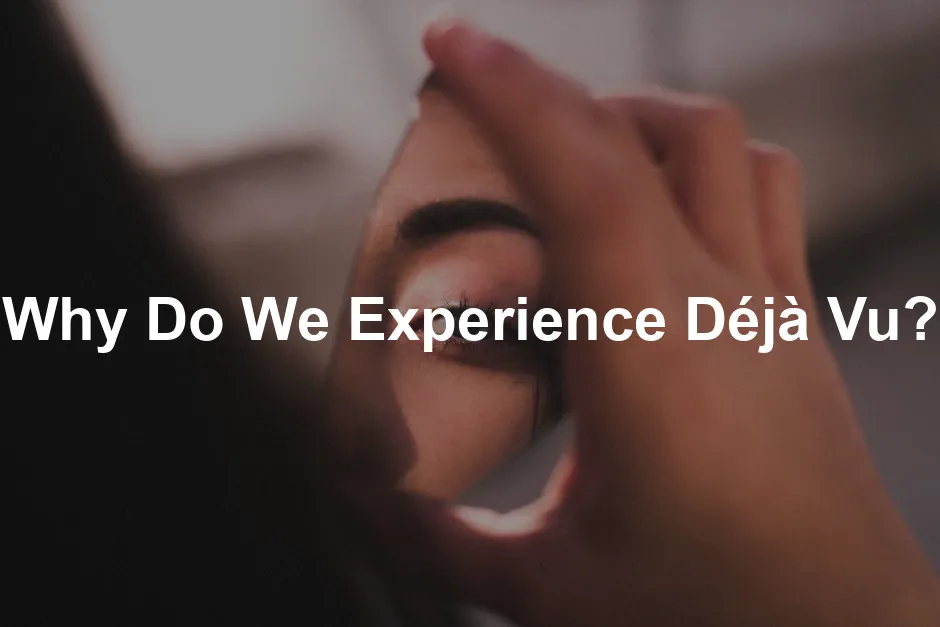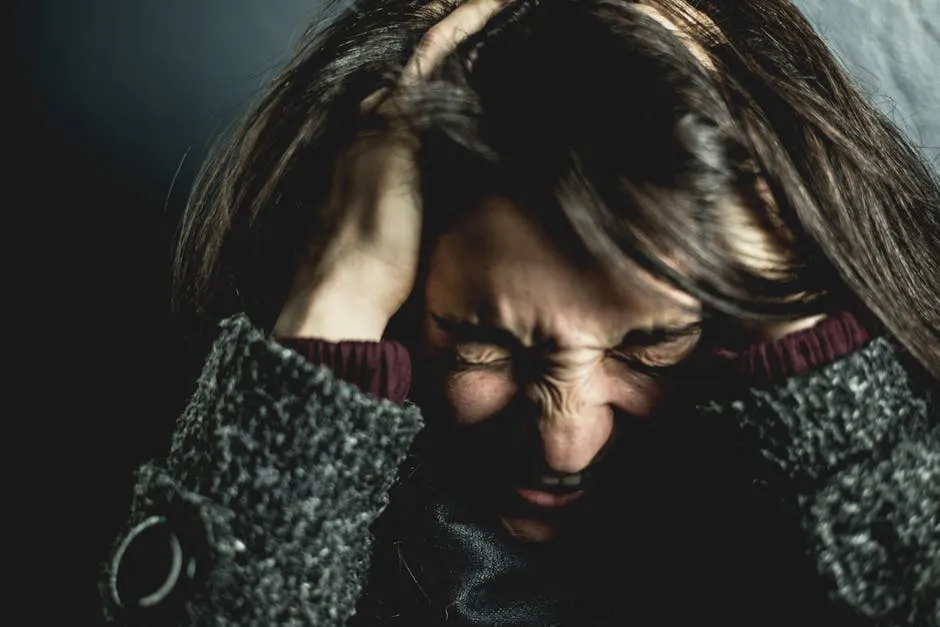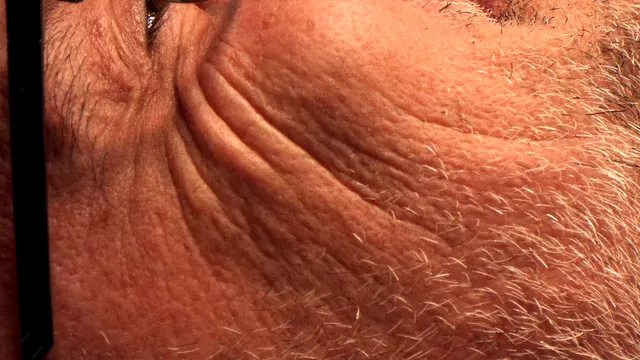
Why Do We Experience Déjà Vu?
Introduction
Déjà vu is that peculiar sensation where you feel you’ve lived a moment before. You know, like when you walk into a room and think, “I’ve been here, done this!” Surprisingly, around 60-97% of people experience this quirky phenomenon at least once in their lives. It’s a little like the brain’s version of a glitch in the Matrix. So, the big question is: why do we experience déjà vu? This article aims to unpack this intriguing occurrence from different angles. We’ll investigate psychological, neurological, and cultural interpretations, revealing just how complex our minds can be. Buckle up, as we navigate through this mind-boggling topic!Speaking of complex minds, if you’re interested in diving deeper into the workings of your brain, consider reading The Brain That Changes Itself by Norman Doidge. It’s a fascinating read that explores the incredible plasticity of the human brain. You might just find a new way to look at those déjà vu moments!
Understanding Déjà Vu
What is Déjà Vu?
The term “déjà vu” comes from French, meaning “already seen.” It refers to that disorienting feeling of familiarity with a situation that, logically, you know is new. Imagine you’re at a café, sipping your latte, when suddenly you feel like you’ve had that exact moment before. Weird, right? Common examples include mundane activities, like chatting with a friend or visiting a new place. Suddenly, a wave of familiarity washes over you, and you’re left scratching your head. Is your brain playing tricks on you? Déjà vu isn’t the only memory oddity out there. There’s also “jamais vu,” where familiar situations feel strange and unrecognizable, and “déjà vécu,” which refers to the sensation of having lived through an experience in detail. While déjà vu feels like a déjà vu déjà vu, these related phenomena add layers to our understanding of memory and perception. So, what’s happening when déjà vu strikes? Keep reading as we explore the fascinating theories and explanations behind this mind-bending experience!If you’re intrigued by the concept of memory, you might want to check out The Memory Book by Harry Lorayne. It’s a classic guide filled with techniques to improve your memory, which could come in handy when you’re trying to make sense of those déjà vu moments!
The Frequency of Déjà Vu
Déjà vu isn’t just a quirky phenomenon; it’s surprisingly common! Studies suggest that between 60% to 97% of people report experiencing it at least once. So, if you’ve felt that strange sense of familiarity, you’re definitely not alone. Younger folks, especially those aged 15 to 25, are the champions of déjà vu experiences. It’s like a rite of passage! As we age, the frequency tends to dip. By the time we hit our thirties and beyond, déjà vu might become a rare guest at the memory party. This decline could hint at changes in how our brains process memories, rather than a memory loss catastrophe. Lifestyle factors also come into play. Education levels and travel habits can influence déjà vu occurrences. Highly educated individuals and frequent travelers report experiencing it more often. If you love exploring new places or have a knack for remembering your dreams, you might just find yourself nodding in familiarity more frequently. Research indicates that déjà vu tends to strike during the evenings and on weekends. So, next time you’re out and about, keep an eye out. You might just find yourself saying, “I’ve been here before!” In essence, déjà vu is a shared experience, with younger people and those with rich, varied lifestyles feeling its effects the most. It’s a reminder of the fascinating ways our brains work, even if they play tricks on us now and then!
To enhance your understanding of the brain’s wonders, consider picking up Thinking, Fast and Slow by Daniel Kahneman. This book will challenge your perceptions of thought and memory, giving you a fresh lens through which to view déjà vu.
Theories Explaining Déjà Vu
Memory-Related Theories
Implicit Memory
Now, let’s get into the nitty-gritty of déjà vu with memory-related theories. One interesting concept is implicit memory. This sneaky little thing can trigger déjà vu when we encounter situations similar to ones we’ve experienced before, but can’t pinpoint the original moment. Research by Anne Cleary shows that our brains sometimes pull out these hidden memories, creating a sense of familiarity. Imagine walking into a new café, but it feels like you’ve sipped that exact latte before. Your brain might be saying, “Hey, remember that time two years ago?” even if you can’t recall the details.If you want to dig even deeper into the world of memory, I recommend The Science of Memory by John H. Krantz. It’s a fantastic introduction to the complexities of how we remember, perfect for anyone keen on understanding their brain better!
Split Perception Theory
Next up is the split perception theory. This theory suggests that déjà vu pops up when our brains process a sensory experience twice, but with a twist. Picture a news presenter reading a breaking story. They hear the news in their earpiece and think, “I’ve read this before!” In reality, they’re experiencing the same information twice, leading to a feeling of déjà vu. The first sensory input is fleeting, while the second one gets registered as familiar. This, my friends, is your brain playing a little game of catch-up! In conclusion, these theories shed light on the mechanics behind déjà vu. Implicit memory and split perception give us a peek into how our minds connect dots, sometimes leading to that delightful feeling of déjà vu!Neurological Perspectives
Brain Activity and Déjà Vu
Déjà vu is intricately linked to brain activity, particularly in the temporal lobe and hippocampus. These areas are crucial for forming and retrieving memories. The temporal lobe houses the hippocampus, which plays a vital role in short-term memory storage. When déjà vu occurs, it can feel like déjà vu is a glitch, where the brain mistakenly signals familiarity. Research by Akira O’Connor highlights this phenomenon. His studies reveal that when people experience déjà vu, specific brain regions activate, showcasing an unusual overlap in memory processing. The medial prefrontal cortex lights up, suggesting a mismatch between actual experiences and perceived memories. Essentially, your brain is attempting to reconcile what it thinks it knows with what is actually happening. It’s like your brain is saying, “I’ve seen this before!” even when it hasn’t, leading to that eerie feeling.To get a better grasp of how our brains function, check out The Power of Now by Eckhart Tolle. It’s a spiritual guide that can help you navigate your thoughts and experiences, including those curious moments of déjà vu.
Epilepsy and Other Medical Conditions
Interestingly, déjà vu isn’t always harmless. It can indicate underlying medical conditions, particularly temporal lobe epilepsy. In this condition, seizures can trigger strong sensations of déjà vu. This can be alarming, as it may confuse a person into thinking they’ve lived through the current moment before. The difference between healthy and pathological déjà vu is significant. For most, occasional déjà vu is nothing to worry about. However, those with epilepsy may experience frequent bouts, often accompanied by other symptoms like confusion or loss of awareness. It’s essential to recognize when déjà vu becomes concerning, as it could signal a deeper neurological issue needing attention.If you’re curious about the mind and its quirks, consider reading The Man Who Mistook His Wife for a Hat by Oliver Sacks. This book provides a fascinating look into various neurological conditions, which might give you more context about experiences like déjà vu!
Psychological Factors
Stress and Fatigue
Stress and fatigue can amplify the likelihood of experiencing déjà vu. When you’re overwhelmed, your brain operates differently. Studies indicate that heightened stress levels can lead to more frequent déjà vu occurrences. Anecdotal evidence supports this, with many individuals reporting heightened déjà vu during stressful periods. Think about those times when you’re exhausted. Your brain might struggle to process information efficiently, increasing the chances of misfiring memory signals. This can create those uncanny moments of familiarity. So, if you find yourself saying, “I’ve been here before!” while juggling a million tasks, it might just be your brain’s way of saying, “Slow down, buddy!”
For those seeking stress relief, consider a mindfulness app. A gift card for a mindfulness app could be the perfect way to find calm amidst the chaos. It’s an excellent tool for those who want to reduce stress and enhance their overall well-being.
Age and Cognitive Decline
As we age, our experiences with déjà vu tend to decrease. This decline is intriguing and may highlight changes in memory processing. Younger adults, especially those between 15 and 25, often report déjà vu episodes more frequently. It’s almost like a rite of passage! But what happens as we grow older? By the time we hit our thirties, déjà vu becomes less of a regular visitor. Some researchers suggest that this decline reflects how our brains process memories. Our ability to recognize false familiarity may diminish, rather than indicating memory loss. Older adults might simply be less effective at distinguishing between real and misfired memories. This means that while their brains still function well, the signals sometimes get crossed. Imagine trying to tune in to a radio station but only catching static. You know the music is there somewhere, but it’s just not coming through clearly. Additionally, lifestyle factors can influence these experiences. Those who travel frequently or engage in mentally stimulating activities may continue to experience déjà vu, even in older age. It’s a peculiar dance between age, memory, and lifestyle choices that keeps the brain on its toes. So, what does this all signify? The drop in déjà vu occurrences with age could indicate a shift in how our brains process information. It might also hint at the complexities of memory and how we navigate our ever-changing realities. As we age, we may find that our relationship with déjà vu evolves, just like the experiences that shape our lives.
To keep your brain sharp as you age, consider a brain training game or puzzle book. These can help stimulate your mind and keep those cognitive skills in tip-top shape!
Cultural Perspectives
Cultural contexts can shape our understanding and interpretation of déjà vu. Different societies may have unique beliefs and explanations for this curious phenomenon. For some, déjà vu might be seen as a glimpse into past lives or a connection to the spiritual world. Others may chalk it up to simple chance or coincidence. In cultures where spirituality plays a significant role, déjà vu can evoke feelings of intuition or psychic experiences. People may interpret these sensations as signs from the universe. For instance, in certain Eastern philosophies, déjà vu might be viewed as a moment of enlightenment, hinting at a deeper truth about one’s existence. Conversely, in more pragmatic cultures, déjà vu is often dismissed as a memory glitch. The science behind it is emphasized, and explanations focus on neurological processes. This divergence in understanding highlights how cultural backgrounds influence perceptions of reality. Moreover, language plays a role in shaping our experience of déjà vu. French speakers may find the sensation more unsettling due to the language’s nuances, while English speakers might view it as a whimsical oddity. This linguistic difference can affect how we approach and discuss déjà vu experiences. In essence, cultural perspectives enrich our understanding of déjà vu. They provide a multifaceted view of how this phenomenon is experienced and interpreted across the globe. It’s a reminder that our perceptions are often colored by the cultural lenses through which we see the world.
When Déjà Vu Becomes Concerning
Is Déjà Vu a Sign of a Problem?
While déjà vu is mostly harmless, it can sometimes signal underlying medical issues. Frequent episodes, especially when they become bothersome, warrant a closer look. In particular, recurrent déjà vu experiences may indicate conditions such as epilepsy or dementia. Temporal lobe epilepsy is a primary concern when it comes to déjà vu. People with this condition may experience intense episodes of déjà vu prior to seizures. It can be confusing, as they might feel a strong sense of familiarity before losing consciousness or experiencing other symptoms. If déjà vu occurs with unusual sensations or convulsions, it’s crucial to seek medical attention. Dementia can also play a role in persistent déjà vu. Individuals with this condition may confuse present experiences with memories, leading to a distorted sense of reality. In such cases, they might insist they’ve lived through a moment before, even when it’s entirely new. This can be alarming for both the individual and their loved ones. So, when should you consider seeking help? If déjà vu becomes a frequent occurrence—say, a few times a month—or is accompanied by other symptoms like confusion, memory loss, or seizures, it’s wise to consult a healthcare provider. These signs could indicate a neurological issue that requires professional evaluation. In conclusion, while déjà vu is often a fleeting experience, it’s essential to pay attention to patterns. If you start noticing frequent episodes alongside other troubling symptoms, don’t hesitate to reach out for medical advice. After all, your health is worth investigating, even if the cause of déjà vu remains a mystery!
For a thoughtful exploration of the mind and its complexities, I recommend The Interpretation of Dreams by Sigmund Freud. It’s a classic that delves into the subconscious, providing insights that could enhance your understanding of déjà vu and its relation to dreams.
Conclusion
Déjà vu is a captivating phenomenon that many of us encounter at some point in life. It’s that quirky feeling that tells us, “I’ve been here before!” Despite being a common experience, its underlying nature remains a mystery. We’ve examined various theories, from memory-related explanations to neurological perspectives, shedding light on how our brains sometimes play tricks on us. While déjà vu is typically harmless, its complexity raises intriguing questions about memory and consciousness. Each episode invites us to ponder how our minds work. It reminds us that our memory systems can create a sense of familiarity even in unfamiliar situations. So, the next time you find yourself in a moment of déjà vu, take a moment to appreciate the fascinating workings of your brain. Engage with your déjà vu experiences! Reflect on them and consider what they might reveal about your mind. After all, understanding how we perceive familiarity can provide deeper insights into our consciousness and the intricate nature of human memory. Life is full of surprises, and déjà vu is just one of those delightful quirks that keep us curious.
For those curious about happiness and how to nurture it, consider reading The Happiness Project by Gretchen Rubin. It’s an inspiring read that can help you find joy in everyday moments!
FAQs
What causes déjà vu?
Déjà vu occurs when our brain creates a false sense of familiarity. This can happen for several reasons. One primary cause is the brain’s implicit memory system, which can trigger feelings of familiarity when encountering similar situations. Other contributing factors include split perception, where sensory inputs are processed twice, and minor brain circuit malfunctions. Also, delayed processing of sensory information can result in experiencing the same event as two separate experiences, leading to that uncanny feeling.
Is déjà vu a sign of a serious health problem?
In most cases, déjà vu is normal and not a cause for concern. However, if it happens frequently—say, several times a month—or is accompanied by other symptoms like confusion, memory loss, or seizures, it may signal an underlying health issue. Conditions such as temporal lobe epilepsy can trigger strong sensations of déjà vu. If you notice any concerning patterns, it’s advisable to consult a healthcare provider.
Can déjà vu happen to anyone?
Absolutely! Déjà vu is a common experience, with estimates suggesting that 60-97% of people have felt it at least once. Younger individuals, particularly those aged 15 to 25, report experiencing déjà vu more frequently than older adults. Factors such as high education levels, travel habits, and even remembering dreams can influence its likelihood. So, if you’ve felt that uncanny sensation, rest assured, you’re not alone!
Are there ways to reduce déjà vu experiences?
While there’s no surefire way to eliminate déjà vu, managing stress and ensuring adequate rest can help minimize occurrences. Stress can alter how our brains process memories, making us more prone to feelings of familiarity. Regular relaxation techniques, mindfulness practices, and maintaining a healthy sleep schedule can contribute to a clearer mind, potentially reducing those déjà vu moments.
Is there a scientific explanation for déjà vu?
Yes! Scientists have proposed various theories to explain déjà vu, primarily linking it to memory processing. Theories suggest that it may arise from the brain’s attempt to reconcile familiar sensations with actual experiences. Research indicates that the temporal lobe plays a crucial role, as it’s involved in memory and recognition. Notably, studies have shown that specific brain regions activate during déjà vu experiences, indicating a mismatch between perceived familiarity and actual events. While the exact causes remain unclear, ongoing research continues to unravel the complexities of this intriguing phenomenon.
Understanding the reasons behind déjà vu can be fascinating. For more insights, check out Why do we get déjà vu and what causes this feeling.
Please let us know what you think about our content by leaving a comment down below!
Thank you for reading till here 🙂
All images from Pexels




